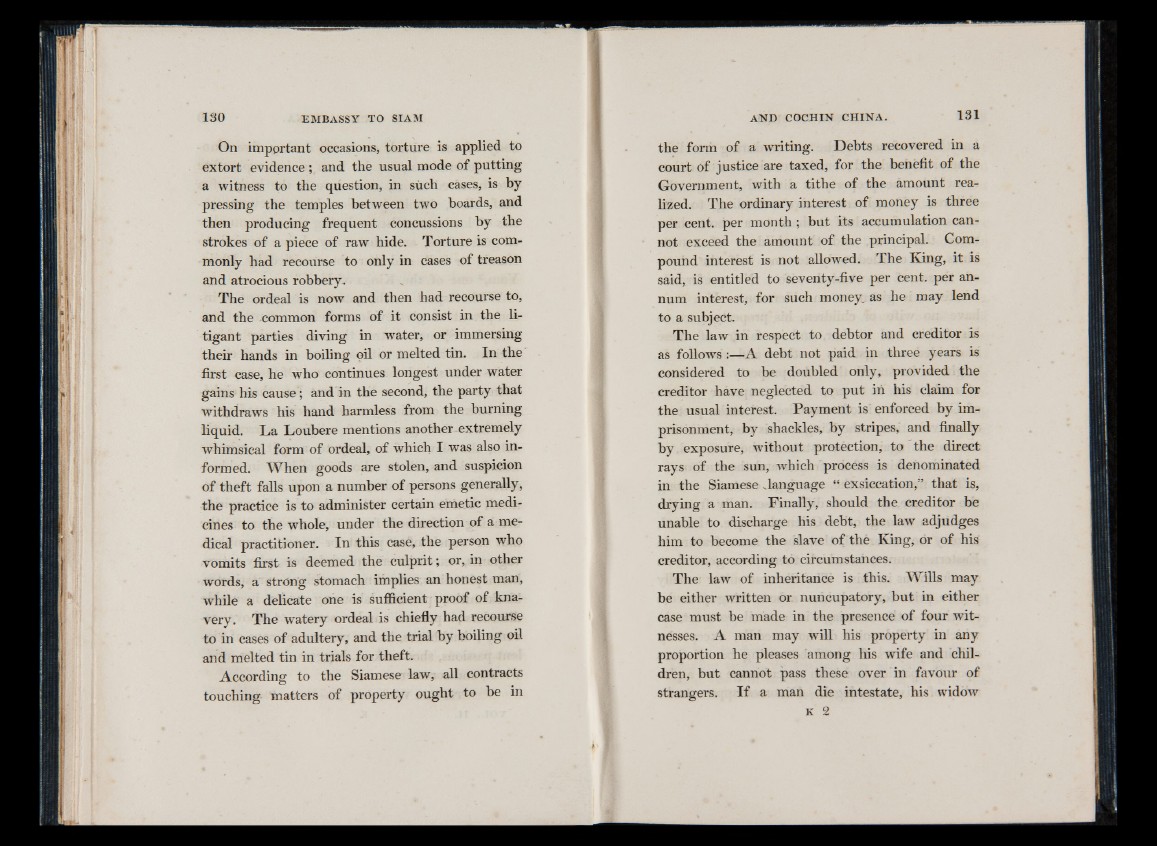
On important occasions, torture is applied to
extort evidence ; and the usual mode of putting
a witness to the question, in such cases, is by
pressing the temples between two boards, and
then producing frequent concussions by the
strokes of a piece of raw hide. Torture is commonly
had recourse to only in cases of treason
and atrocious robbery.
The ordeal is now and then had recourse to,
and the common forms of it consist in the litigant
parties diving in water, or immersing
their hands in boiling oil or melted tin. In the
first case, he who continues longest under water
gains his cause; and in the second, the party that
withdraws his hand harmless from the burning
liquid. La Loubere mentions another extremely
whimsical form of ordeal, of which I was also informed.
When goods are stolen, and suspicion
of theft falls upon a number of persons generally,
the practice is to administer certain emetic medicines
to the whole, under the direction of a medical
practitioner. In this case, the person who
vomits first is deemed the culprit; or, in other
words, a strong stomach implies an honest man,
while a delicate one is sufficient proof of knavery.
The watery ordeal is chiefly had recourse
to in cases of adultery, and the trial by boiling oil
and melted tin in trials for theft.
According to the Siamese law, all contracts
touching matters of property ought to be in
the form of a writing. Debts recovered in a
court of justice are taxed, for the benefit of the
Government, with a tithe of the amount realized.
The ordinary interest of money is three
per cent, per month ; but its accumulation cannot
exceed the amount of the principal. Compound
interest is not allowed. The King, it is
said, is entitled to seventy-five per cent, per annum
interest, for such money, as he may lend
to a subject.
The law in respect to debtor and creditor is
as follows :—A debt not paid in three years is
considered to be doubled only, provided the
creditor have neglected to put in his claim for
the usual interest. Payment is enforced by imprisonment,
by shackles, by stripes, and finally
by exposure, without protection, to the direct
rays of the sun, which process is denominated
in the Siamese .language “ exsiccation,” that is,
drying a man. Finally, should the creditor be
unable to discharge his debt, the law adjudges
him to become the slave of the King, or of his
creditor, according to circumstances.
The law of inheritance is this. Wills may
be either written or nuncupatory, but in either
case must be made in the presence of four witnesses.
A man may will his property in any
proportion he pleases among his wife and children,
but cannot pass these over in favour of
strangers. I f a man die intestate, his widow
k 2